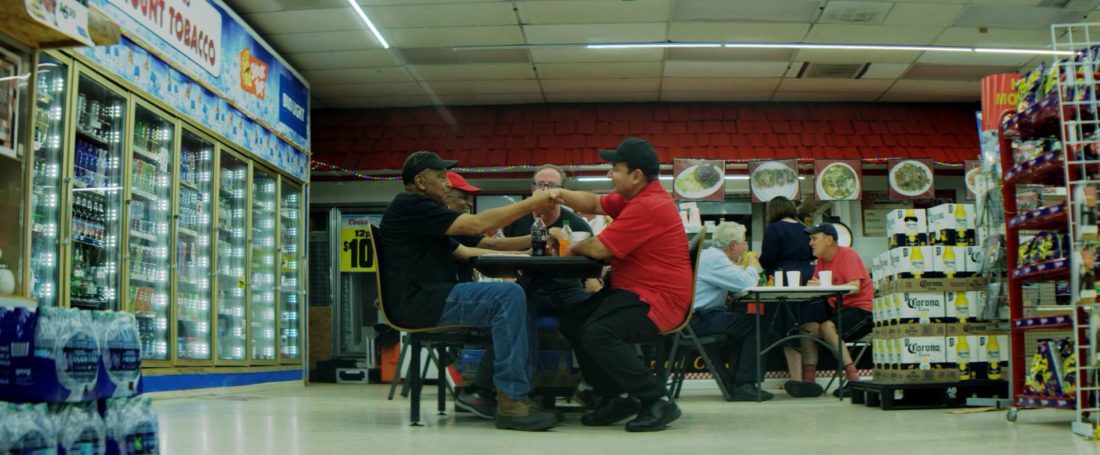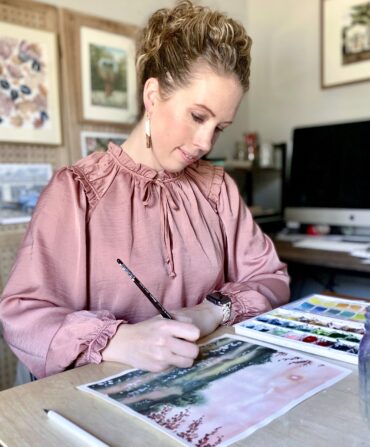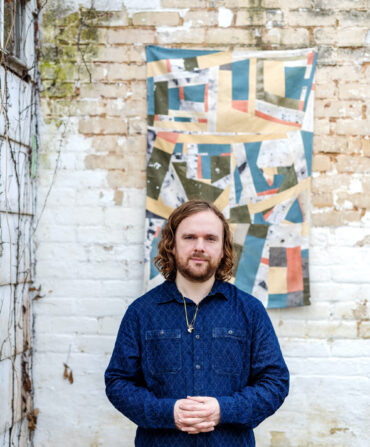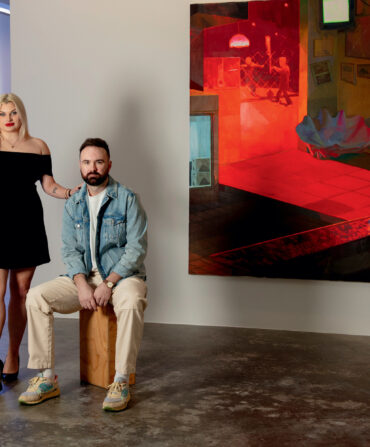Later this month, the SEC Network will air the first episode of a new series called TrueSouth. The show—about the intertwining of food and culture in the South—is hosted by John T. Edge, the director of the Southern Foodways Alliance and a contributor to Garden & Gun. Wright Thompson, the ESPN writer (and another G&G contributor), is the series’ executive producer.
Each of the four episodes will feature two different restaurants—and the food, chefs, pit masters, bartenders, and patrons that make them special. The first episode airs on the SEC Network at 7 p.m. Eastern on September 18.
We caught up with Edge and Thompson—friends who live eight blocks from each other in Oxford, Mississippi—to talk about the show, the complexity of the South, and their take on the Alabama-Ole Miss game.
I have to admit that when I heard about the show, and its mission and direction, I thought it seemed to be a bit of a departure for the SEC Network. I mean, it’s not exactly Tammy calling into Finebaum and screaming about Auburn losing to LSU. How do you guys see TrueSouth fitting in with the network?
Wright Thompson: SEC football is definitely a sport that people play, and people watch, and the score is kept, but anyone who lives here knows that it’s fourteen different other things, too, many of them cultural. It is reunion, and it is gathering. It is communion, and it is connection among generations. TrueSouth is a departure from the rest of the network’s programming, technically. But I think that looking at the food and culture and the food culture of the South fits perfectly with the way the SEC is actually consumed and viewed by Southerners.
John T. Edge: I think it’s a natural evolution for the network. The SEC Network is a gathering place for Southerners. You find your tribe, you root for your team, but you don’t do that out of context. You do that while you’re eating a barbecue sandwich, or you do that while you’re gathered around a table with your family. This show extends that conversation. Football and food are expressions of people and place in the American South. I think what we’re trying to do is to tell a story about the South, an honest story. The SEC Network is the perfect place to do it because we are talking to our own people.
Where did the idea come from?
Edge: This is something I’ve long wanted to do, but I never thought anybody would give me the chance, to be frank. The work I’ve been doing with the Southern Foodways Alliance and the writing I’ve been doing for Garden & Gun and other venues, all of that informs what I’m doing with this show. This is a chance for a big megaphone, this is a chance to share all of the stuff I’ve squirreled away in my head for a long time. It’s a chance to pay tribute to these people whom I really respect. The people whose stories we’re telling through the show are the people whose food I love. These narratives are deeply important. When you get a chance to tell those stories on broadcast television, well, that’s important. And I’m kind of goofily excited about it.
Thompson: The verb ‘hosted’ in the ‘hosted by John T. Edge’ in the title of the show I think is very apt because this show isn’t about him. This is a show about people who are cooking this food and he is the tour guide, he is the proxy. But these people making this food are absolutely the stars of the show, which was very important to me in making it.
So why is the show important to you guys? And why now?
Thompson: For me, that’s both a complicated and a simple question. The simple answer is that if you live in the South, you often see the South described, and written about and talked about on television, but very rarely with any accuracy. Sometimes it’s people just misunderstanding what’s going on, and other times, you have this Paula Deen-ificiation of the region. I mean, I look at my grandmother, who is the single most Southern person I’ve ever met, and I just think that she would never have a Styrofoam cup that says ‘Hey, Y’all!’ It’s important to me to tell honest, true stories about the South that we actually live in, that we see every day in our lives. And if the show has a mission statement other than introducing us to interesting people doing delicious, cool stuff, it is to tell a story that people from here will see and immediately think, ‘Yes, that is where I live.’
Edge: It’s important, too, in this moment when we’re seeing that South change before our eyes, and this show looks honestly at a Southern past and looks honestly, too, at a Southern present, and says that past and this present have something to say to each other. This show isn’t some gauzy recollection of a South encased in amber. This is an attempt to see the South clearly today. In the show, we go to Shreveport, Louisiana, and focus on a Chinese restaurant owned by a Malaysian immigrant, and we go to an old guard, fried seafood place owned by third generation Italians. Those worlds are connected in the modern South. And to Wright’s point, people want to portray the South as a simple place, and even a simplistic place, but it’s not. It’s complicated, and that’s where the beauty comes from.
Thompson: We are not nostalgia junkies.
There’s a lovely line in the trailer—“The South is an idea long debated”—that perhaps speaks to this.
Thompson: The South is an endless number of things combining and then separating and then recombining into a culture that is constantly reinventing itself. What is the South? Who is a Southerner? Those are questions that have been debated and will continue to be debated, and I think the show, as a whole and taken across the episodes, is our attempt to answer this question.
Edge: The South is a living, breathing experiment. The people we see in the show—Asians, people from the Mediterranean, first-generation Southerners, bedrock Southerners—all have an idea of what it means to live here. We listen to them and turn the camera on them and encourage them to tell their own stories and tell us what the South is to them. They’re making a new South every day.
Thompson: The South has always been a cauldron that’s under a great deal of pressure and that creates things, whether you’re talking about the fact that Muddy Waters and Tennessee Williams are from the same town, or the fact that the eight restaurants we go to are all run by people who, depending on how you look at it, are either vastly different or exactly the same. They are Southerners making their stand, through the food they cook, through their restaurants through which it’s served, through the communities they build around that food. They are saying ‘This is me. This is us. This is home.’ To tell these stories, about the dreams and costs associated with them, is important to me and I know it’s important to John T.
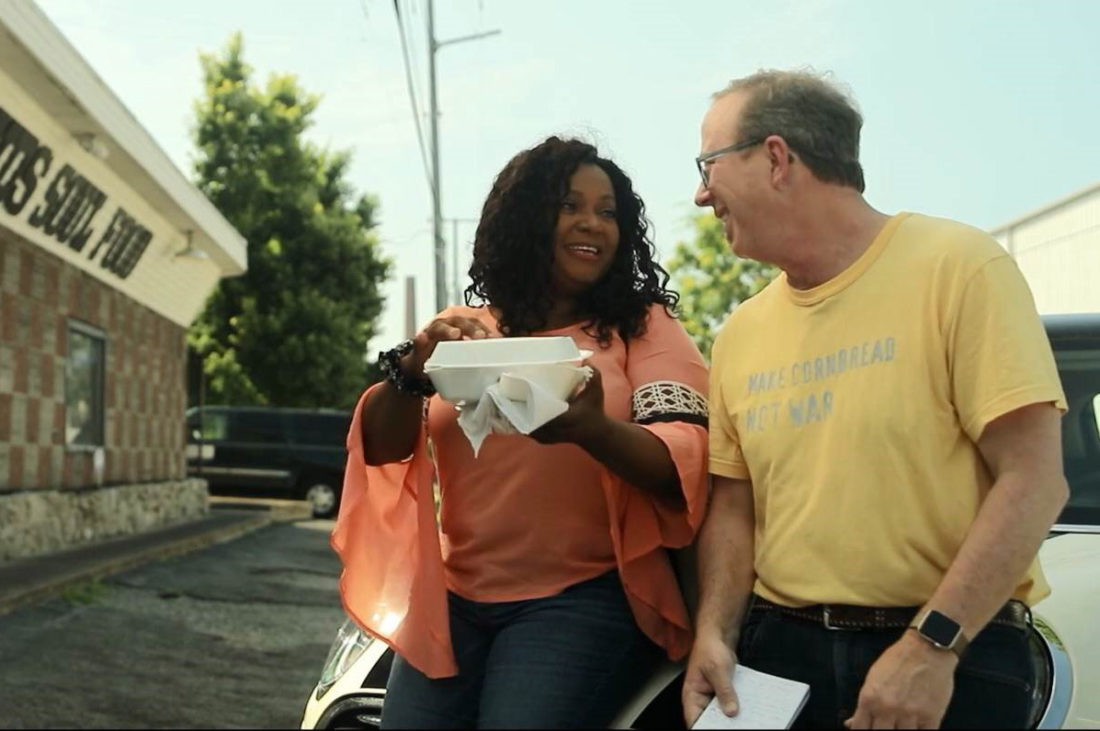
Photo: SEC Network/Bluefoot Entertainment
John T. Edge and Regina McCrary, of the McCrary Sisters gospel music quartet, outside Silver Sands in Nashville.
Are there any experiences or restaurants from the show that stand out for you?
Thompson: Lucky Palace in Shreveport. I’m going there again and again. It’s fabulous food. There are inventive menu items that come from the proprietor, Kuan Lim’s, experience. But I also always tell people who go there, ‘Hey, whatever you normally order at a Chinese restaurant, order it there because it will be awesome.’ And then it has this stupid-good wine list. That’s all I really want in life, a General Tso’s chicken and a really great Châteauneuf-du-Pape. That fits my exact mix of redneck and pretentious.
Edge: I share Wright’s opinion of Lucky Palace, and I think about Kuan Lim and how, when you go there, it’s his room and you are his guest. You have an audience with him. You feel the same way when you go to Nashville to a place called Silver Sands, owned by Sophia Vaughn. Her great aunt opened the place in 1951. It’s soul food, breakfast, and lunch six days a week. An amazing turkey hash that will fortify you for a week. Beautiful hot-water cornbread, creamy in the core and resoundingly crunchy on the exterior. Collards with that umami funk. And I’ve never heard anyone talk with more passion and commitment about her customers than Sophia. She takes care of people in ways that extend beyond food.
All right. One last question. It’s about football. Defending national champion Alabama travels to Oxford to take on Ole Miss on September 15, just a few days before the airing of the first episode of TrueSouth. Wright, I know you went to Missouri, but I presume you’re an Ole Miss fan, right? Will Ole Miss win?
Thompson: Blood is thicker than tuition money. I live here. As we speak, like the overgrown manchild I am, I am wearing a number 42 Charlie Conerly Ole Miss jersey.
How about you, John T.?
Edge: I have two degrees from Ole Miss and I’m employed by the university. I went to Georgia as an undergrad. My wife grew up in Auburn and has a degree from that university. There’s no way in hell I will ever say a kind word about Tuscaloosa.
Thompson: I mean, his wife … If Alabama was playing ISIS Tech, it wouldn’t be a slam dunk that she’d root for Alabama.
Edge: I should note that the University of Alabama and Alabama football plays a pretty big role in our first episode.
Thompson: There’s a restaurant where one of the regulars was Paul “Bear” Bryant.
Edge: He always ordered the brown liquor and the fried seafood platter.
Thompson: The Bear knew what was what.


